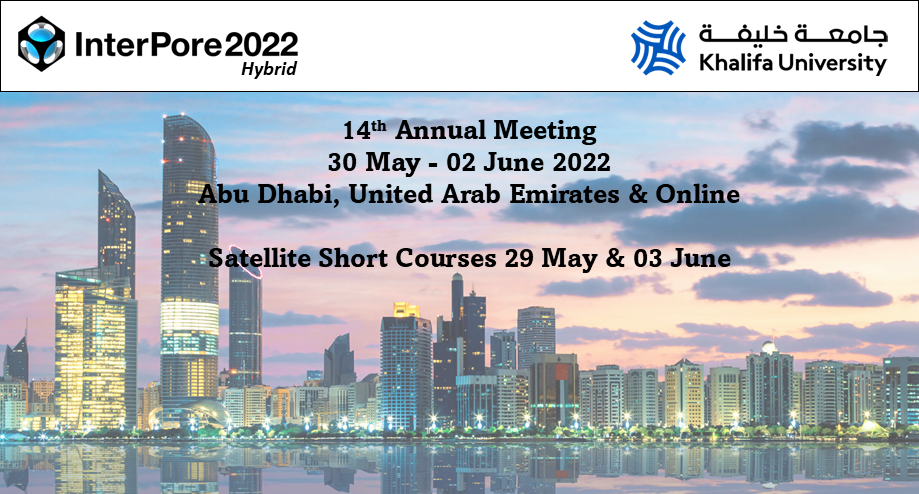Speaker
Description
Multiscale domain decomposition methods have proven to be a reliable way for solving single and two-phase flows in porous media. Among the advantages, the possibility to speed up the parallel simulation of huge domains with nearly ideal performance, is perhaps the most useful for applications in uncertainty quantification. However, in applications such as petroleum reservoir simulation, a more complex black-oil model is often required, which allows the simulation of three different components (water, oil and gas) that form at most three different phases (aqua, liquid and vapor), with possible mass transfer between phases. Among the multiscale domain decomposition methods employed in the solution of such models, are the MMMFEM [1] and MSFV [2].
In this work, we extend the Multiscale Robin Coupled Method (MRCM), a multiscale domain decomposition method recently introduced by the authors [3], for the solution of compressible heterogeneous black-oil model. The MRCM generalizes known mixed methods through the suitable choice of Robin-type boundary condition parameters and the finite element spaces used to span the interface unknowns, introducing flexibility and the possibility of adaptive schemes that greatly increase accuracy when compared to standard techniques. The hyperbolic conservation laws are handled by high order conservative finite volume schemes, while the parabolic pressure equation is discretized by implicit schemes, allowing the application of the domain decomposition method in each time step of the simulation.
We employ a number of test cases to evaluate the application of the MRCM for black-oil simulations, in homogeneous and heterogeneous media. The results show that the MRCM, combined with suitable downscaling techniques, can be successfully employed for the solution of black-oil flows, with good accuracy as compared to the solution of undecomposed cases.
References
[1] G. Singh, W. Leung, M.F. Wheeler. Multiscale methods for model order reduction of non-linear multiphase flow problems. Computational Geosciences 23, 305-323, 2019
https://doi.org/10.1007/s10596-018-9798-5
[2] S.H. Lee, C. Wolfsteiner, H.A. Tchelepi. Multiscale finite-volume formulation for multiphase flow in porous media: Black oil formulation of compressible, three-phase flow with gravity. Computational Geosciences 12, 351-366, 2008
https://doi.org/10.1007/s10596-007-9069-3
[3] R.T. Guiraldello, R.F. Ausas, F.S. Sousa, F. Pereira, G.C. Buscaglia. The Multiscale Robin Coupled method for flows in porous media. Journal of Computational Physics, 355, 1-21, 2018
https://doi.org/10.1016/j.jcp.2017.11.002
| Participation | In person |
|---|---|
| Country | Brazil |
| MDPI Energies Student Poster Award | No, do not submit my presenation for the student posters award. |
| Time Block Preference | Time Block A (09:00-12:00 CET) |
| Acceptance of the Terms & Conditions | Click here to agree |









